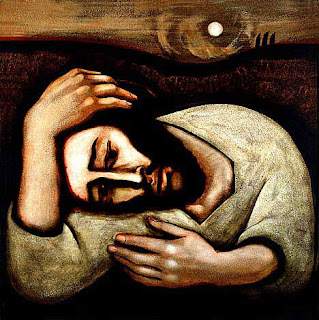Pope Francis has told priests that they should be “shepherds living with the smell of the sheep.” That’s no great challenge to a pastor on the North Shore. The flock showers regularly and smells just fine.
But of course that’s not what the Holy Father is talking about. He’s calling priests to care deeply about what’s going on with those they serve.
He said we are “to rejoice with couples who marry; we are to laugh with the children brought to the baptismal font; we are to accompany young fiancés and families; we are to suffer with those who receive the anointing of the sick in their hospital beds; we are to mourn with those burying a loved one” (Chrism Mass homily, 2015).
The challenging things Pope Francis says often make me feel uncomfortable. After all, my house is bigger than his and so’s my car.
But when it comes to caring about parishioners, my conscience is clear. When you rejoice, I rejoice. And most of all, when you suffer, I suffer.
I feel personally the anxiety of every unemployed parishioner. I share in the worries of parents about rebellious teenagers and kids who won’t come to church. I share the sorrow of penitents who can’t seem to kick a habit of sin. I grieve over the divisions in marriages and families. And I mourn the deaths of those whose funerals I celebrate.
Much as I dislike my habit of choking up in the pulpit, I’m sort of grateful for such concrete proof—for me and for you—that what I’m saying is true. In the Pope's words, I put my own skin and my own heart on the line in my ministry as a priest.
But this solidarity in suffering only goes so far.
If I shared your feelings completely, if I experienced your sins and sorrows to the same degree that you do, I would be crushed. I couldn’t begin to run the parish under that weight.
I’m sure you understand this. Common sense says that a priest must preserve some inner boundaries if he is to function in relationship to a community two or three hundred times bigger than a biological family.
So what has all this to do with Good Friday—with the crucifixion and death of our Lord?
I’ll tell you: our great High Priest, Jesus Christ, did not keep a boundary between us and him. He did not protect himself from being crushed by our sin and sorrow. He let it happen.
On the cross, he took on the full weight of all our suffering.

The Letter to the Hebrews makes it clear that there’s a big difference between Jesus and every other priest. For one thing, he had no sins of his own for which to offer sacrifice; it was all about us.
At the same time, his sinless humanity was no obstacle to his solidarity with us. Earlier in the letter, the author reminds us that Jesus “had to become like his brothers and sisters in every respect, so that he might be a merciful and faithful high priest” (4:17a).
“Because he himself was tested by what he suffered,” the letter continues, “he is able to help those who are being tested” (4:18).
One scholar sums this up by saying that “Christians have in heaven a high priest with an unequalled capacity for sympathizing with them in all the dangers and sorrows and trials which come their way in life...” because Jesus, our brother, “was exposed to all of these experiences” (F.F. Bruce, The Epistle to the Hebrews).
Unlike any priest who ever existed, Jesus united himself with the sin and suffering of his flock. And he brought every bit of it to the cross.
Isaiah’s prophetic words in our first reading could not be any clearer: he was crushed for our iniquities. Crushed for my sins and yours. The punishment we deserved fell on his shoulders.
Let’s not forget that the infirmities and sorrows and sufferings that Jesus brought to the cross weren’t just our sins. Since all human suffering has its root in the sin of our first parents, he carried that too—every illness, every disappointment, every failure and, ultimately, death itself (since death too came into the world through sin).
Father Paul and I are deeply touched that the people of our parish are quick to share their problems with us—to ask for our prayers, to seek some comfort, to ask if we can lighten their load.
But first and foremost, we must all remember this central truth of Good Friday: that another priest, a perfect priest, has done much more than we could ever ask or expect. So we must “approach the throne of grace with boldness”—with complete confidence we should stand before the cross, even at this very moment, and find the help and strength we need in each and every difficulty of life.


No comments:
Post a Comment